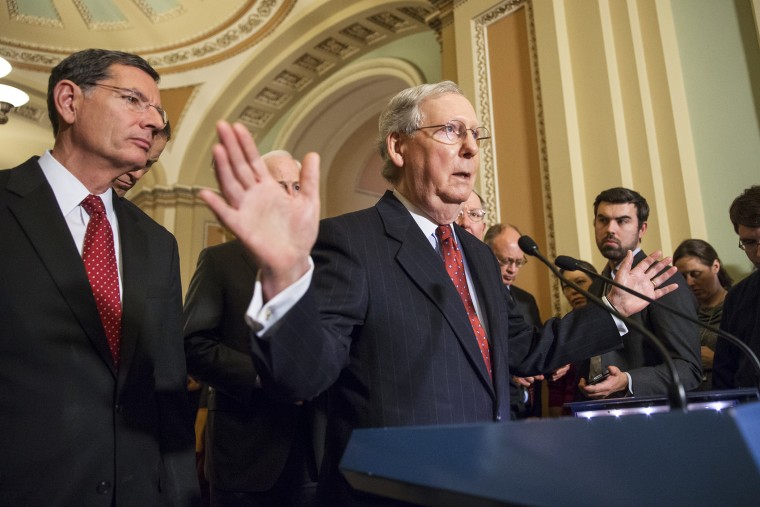Four gun policy measures failed to pass the 60-vote threshold to move forward in the Senate on Monday, following impassioned debate from both sides of the aisle. The votes came just over a week after a deadly shooting spree in a gay nightclub in Orlando -- the nation's worst mass shooting in modern history -- and a subsequent 15-hour filibuster by Senate Democrats who demanded action on gun control.
For a breakdown on what these four proposals were all about, take a look at our report from Friday.
The two key measures -- Sen. Chris Murphy's (D-Conn.) proposal to expand background checks and Sen. Dianne Feinstein's (D-Calif.) amendment on blocking suspected terrorists from buying guns -- were expected to fall short and they did. Murphy's proposal lost on a 44-56 vote, while Feinstein's measure did only slightly better, failing on a 47-53 vote.
There may be some talk about the votes not falling neatly along partisan lines, but the broader truth is more straightforward: nearly every Democrat in the Senate voted for these reforms, while nearly every Republican in the chamber voted against them.
As the Washington Post's Dana Milbank put it, "[O]n the question of closing the 'terror gap' in gun laws, it really isn't a close call.... Republicans responded as if President Obama himself were going door-to-door, confiscating every American's guns."
For those hoping to see meaningful policy changes, last night was the latest in a series of disappointing setbacks, but there were some silver linings in this cloud.
First, a couple of vulnerable GOP incumbents -- Illinois' Mark Kirk and New Hampshire's Kelly Ayotte -- voted with Democrats, suggesting that at least some Republicans believe the political winds are blowing in reformers' direction, and they'd prefer to skip a public backlash in an election year.
Second, the fact that these votes happened at all was an unexpected victory. Murphy's 15-hour filibuster made it possible, and forced senators to go on the record in an election year on an important matter of public safety. Dems genuinely seem to believe they can use this issue to their advantage in the fall, and yesterday's votes will create fodder for campaign ads.
And finally, these Senate measures were almost certainly doomed -- even if they somehow passed the chamber, there was no chance of success in the House -- but they nevertheless helped establish the terms of the debate. For the right, mass shootings have nothing to do with guns and everything to do with terrorism (or mental health, or perhaps video games, depending on the shooter). Yesterday's votes were about establishing some rhetorical parameters that work in progressives' favor.
That said, the goal for reformers is meaningful, substantial change to domestic policy, not evidence of strategic progress, and yesterday was a reminder of just how little GOP lawmakers are prepared to do in the wake of deadly tragedies.
